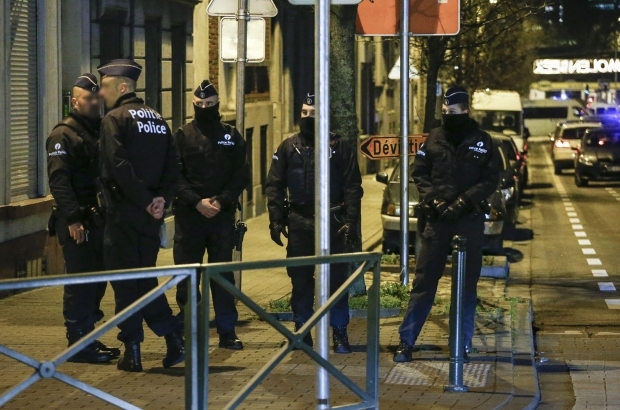- Daily & Weekly newsletters
- Buy & download The Bulletin
- Comment on our articles
New plan to combat drug violence in Brussels aims to 'take back control'
A newly unveiled security plan for Brussels entails cameras, military personnel and special police teams tasked with combating drug violence in the Belgian capital.
Interior minister Bernard Quintin (MR) outlined the plan over the weekend and said he wanted to roll it out "as soon as possible" in the Brussels municipalities most affected by rising drug-related crime, plus in Antwerp, Ghent, Liège, Charleroi and Mons.
In Brussels, Quintin wants to send mixed patrols of police officers and military personnel to hotspots as soon as possible. He said he had reached an agreement on this with defence minister Theo Francken (N-VA). This measure could also be implemented in other large cities if they request it.
The minister is allocating €20 million for the network of security cameras. Municipalities that do not have the funds to purchase or maintain cameras will be assisted.
Minister Francken has meanwhile announced that a "clear legal framework with clear powers and rules of engagement" is ready.
“I will soon put this draft law on the agenda of the Council of Ministers – we need to take back control,” he announced in a post on social media.
It is not yet clear how far the powers of the military will extend. According to Francken’s cabinet, this will be part of the discussion within the government.
It is also unclear whether the government will wait for the legal framework before sending the military on to the streets.
The plan has already been met with sharp criticism, notably from the military union ACMP, 40 Brussels neighbourhood committees and Brussels politicians from Groen and Open VLD.
These groups especially take issue with the use of military personnel for street patrols.
ACMP’s Yves Huwart said that there was currently no regulatory framework governing the powers of soldiers who have to patrol their own country.
“The homework is not yet done,” Huwart said, pointing out that the current framework only allows soldiers to defend themselves.
“So it's really about deterrence and forming a shield for the police officers. I don't really understand why the police can't fulfil that task themselves.”
Huwart also said patrol assignments "have little added value for the military and their training objectives from a military-technical point of view".
The defence ministry is getting new equipment, and the domestic patrol mission could slow down training and the commissioning of that equipment, said Huwart: “A few weeks is manageable, but we don't know when it will end.”
Chief of police Jurgen De Landsheer of the Midi police zone said he was cautiously positive about the proposal, provided that a legal framework is put in place.
“It's a good idea to look at how different security services can help each other. We have been asking for support for some time,” he said in a reaction.
De Landsheer hopes that the military will be able to take over certain security tasks from the local police, at Jewish institutions, for example, so that police can focus on security in neighbourhoods.
“We know the area and we need to be able to be there, but our people are now too often deployed for static security assignments,” De Landsheer said.
The association of 40 Brussels neighbourhood committees, which has been demanding measures from the federal and regional governments for years, is pleased that steps are being taken and that the federal government “recognises that it bears responsibility for this serious crisis”, according to Eric Vandezande, spokesperson for Brussels' neighbourhood committees.
But Vandezande and other representatives in the association still have numerous questions about the plan, especially in regards to military patrols in the streets. “What exactly are those soldiers allowed to do in Brussels? Wouldn't an accelerated introduction of neighbourhood police officers be more effective?” he asked.
The agreement also makes no mention of additional resources for the Brussels public prosecutor's office.
Federal MP Matti Vandemaele (Groen) was among many politicians critical of the new plan, saying it proves the federal government's powerlessness in the face of drug-related violence.
“The police should be responsible for security in public spaces, not the army,” Vandemaele said.
“This plan highlights Minister Quintin's powerlessness. With more than 50,000 people in the police force, he is apparently unable to guarantee the safety of the people of Brussels.
"Instead of using the army for media-friendly show proposals, he should take responsibility and ensure that the police force is functioning properly."
MP Ridouane Chahid (PS) agreed: “By choosing to militarise public spaces, the government is diverting attention from what is really important: providing our police services with the necessary resources to carry out their tasks. This is a dangerous signal that creates a climate of mistrust and fear.”
Like the military union, politicians are also wary of just how "temporary" the measures would be.
“The last time soldiers were ‘temporarily’ assigned to security duties on the streets, they ended up staying there for six years,” Vandemaele said.









